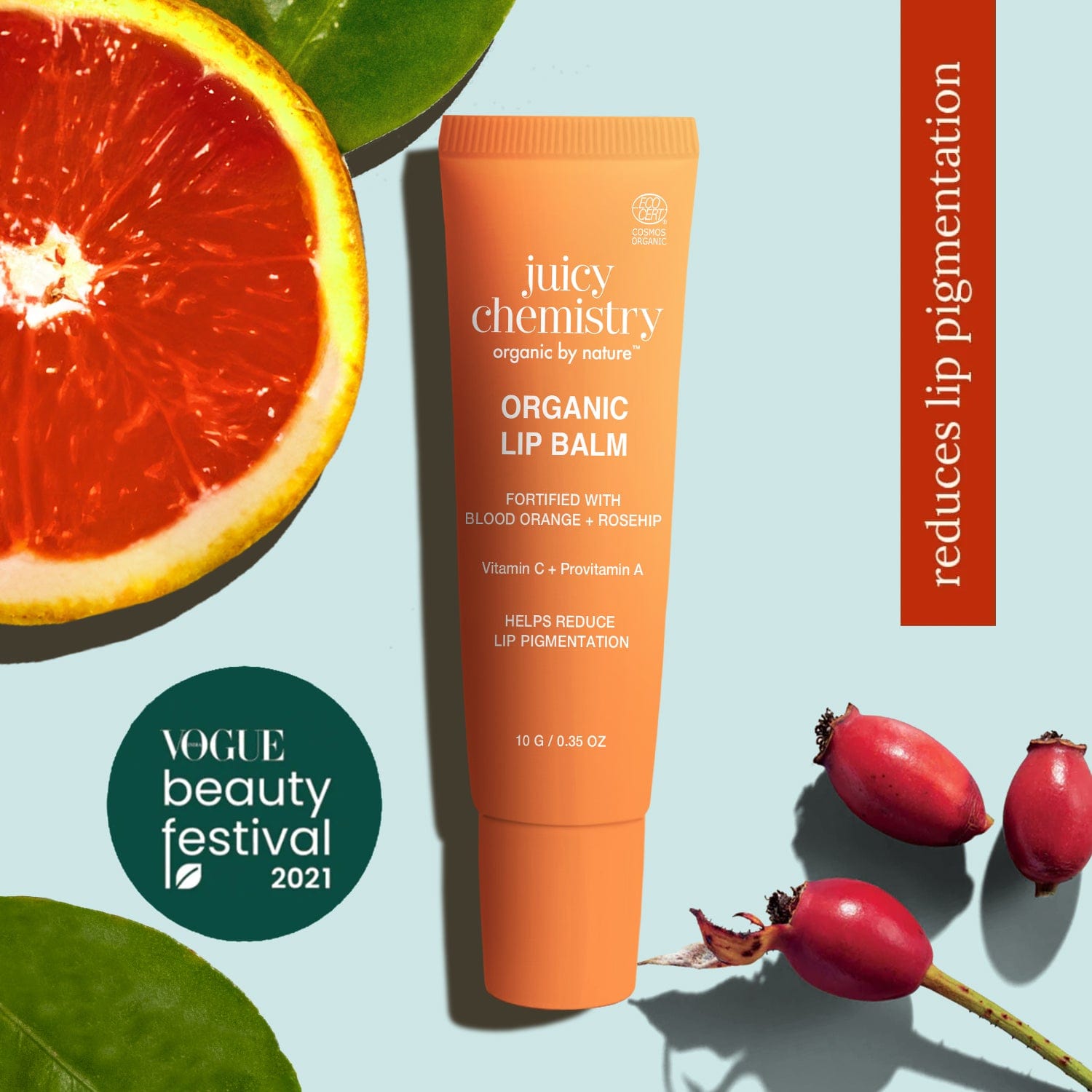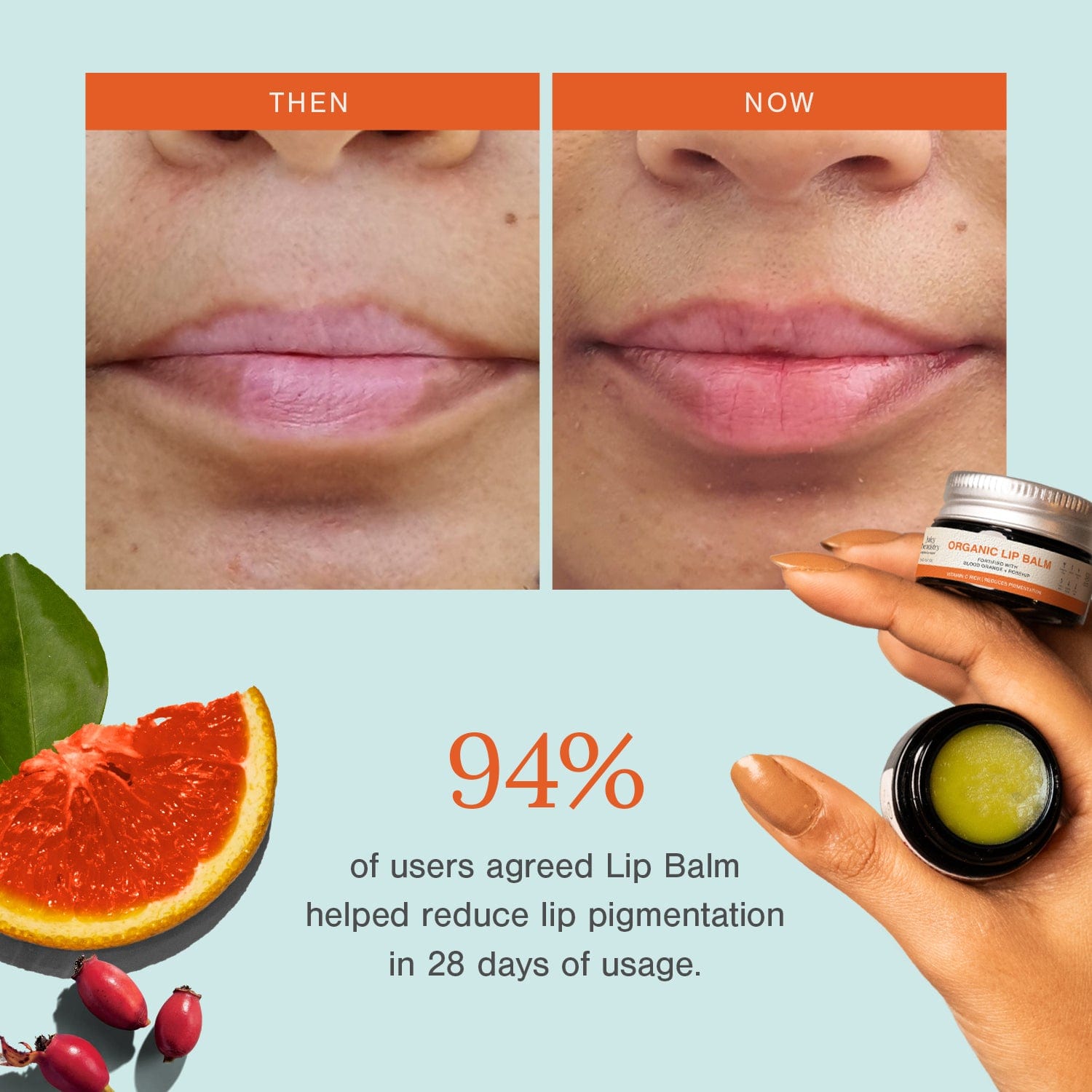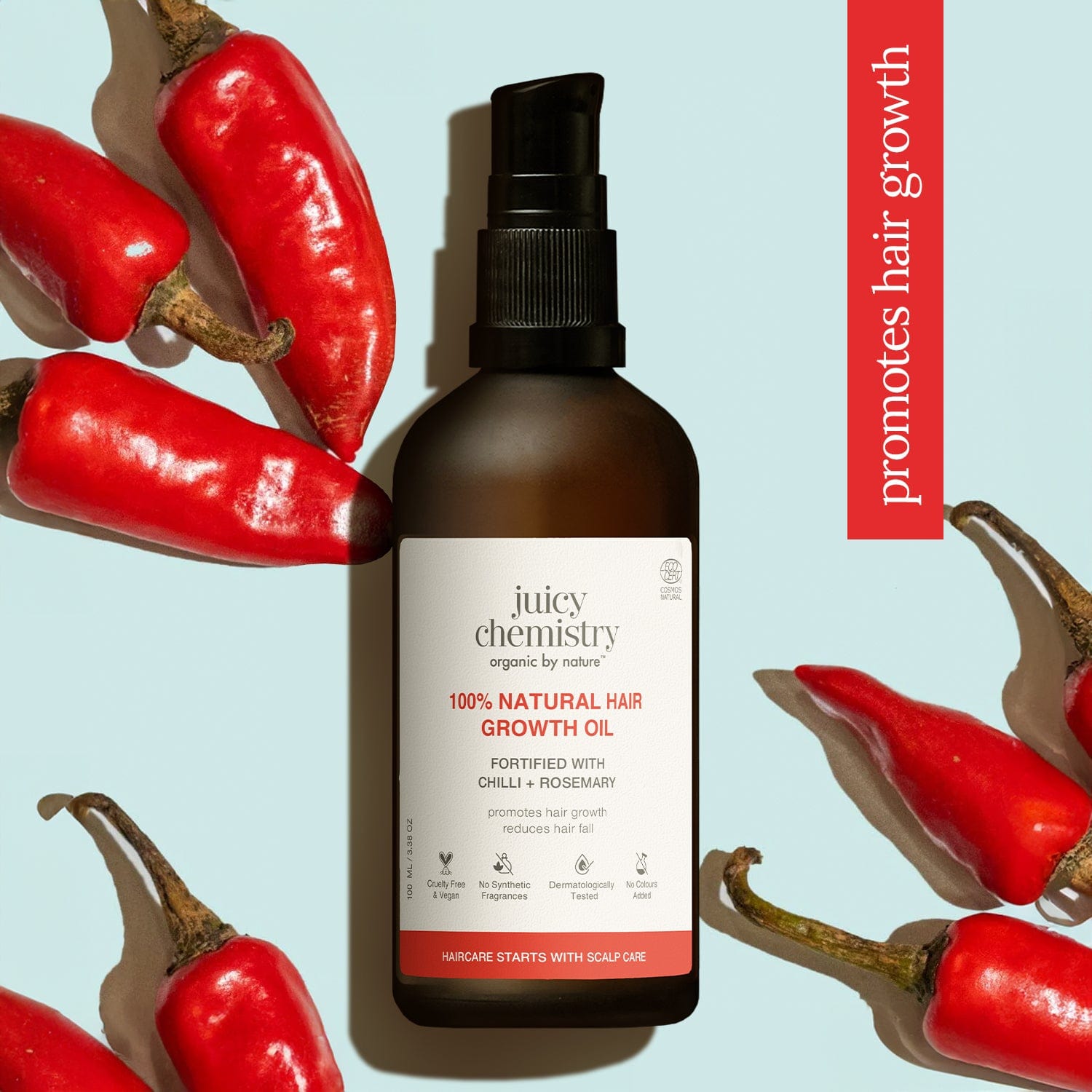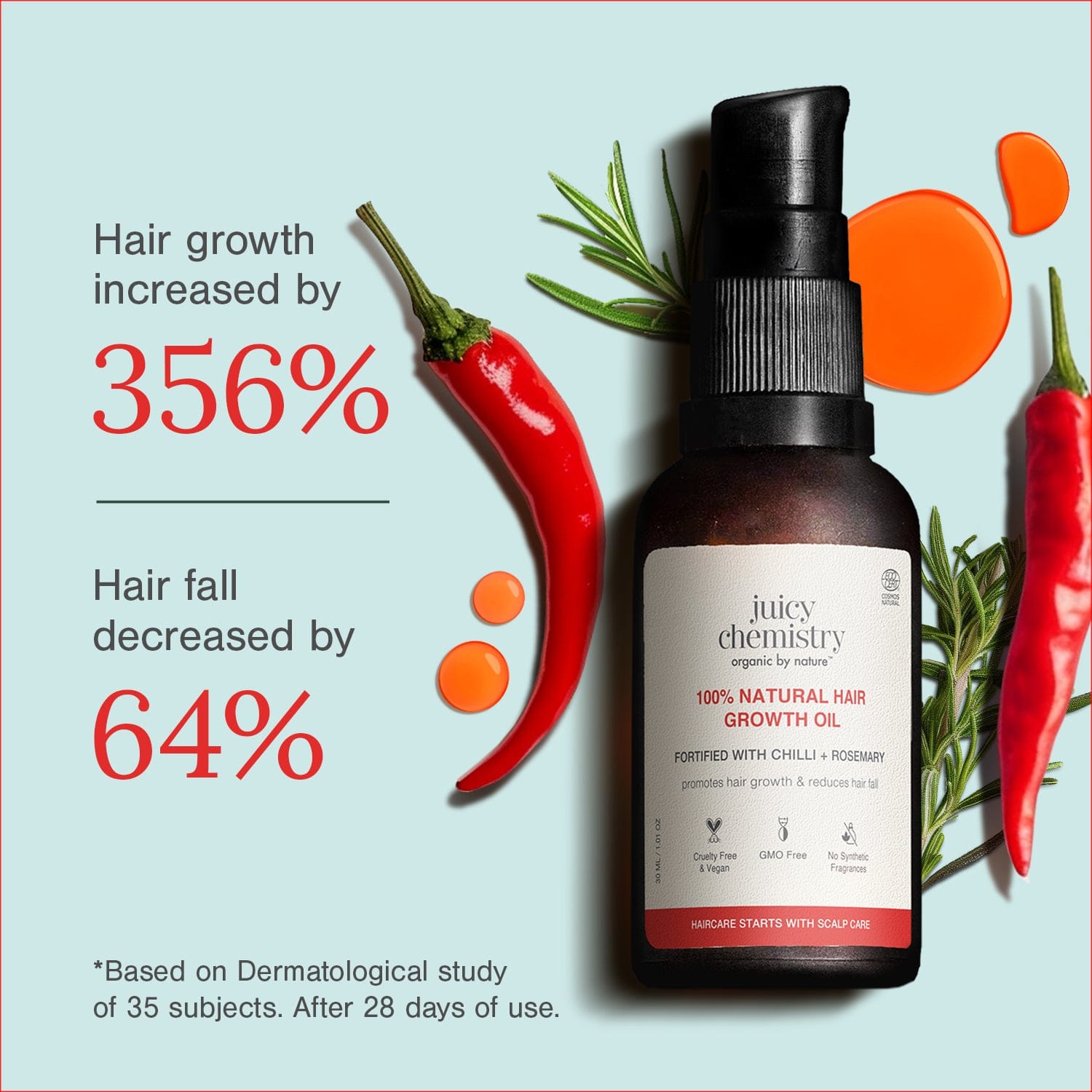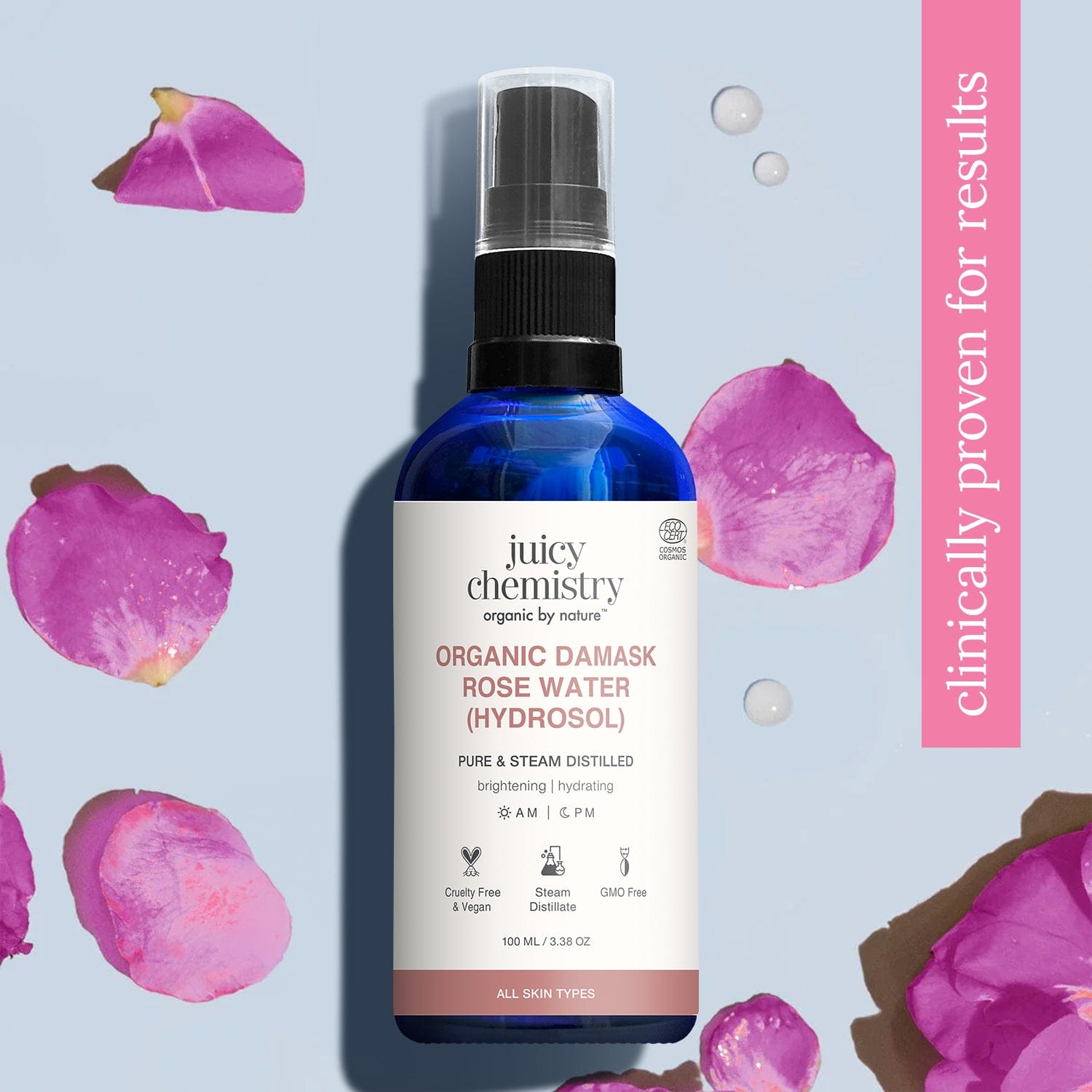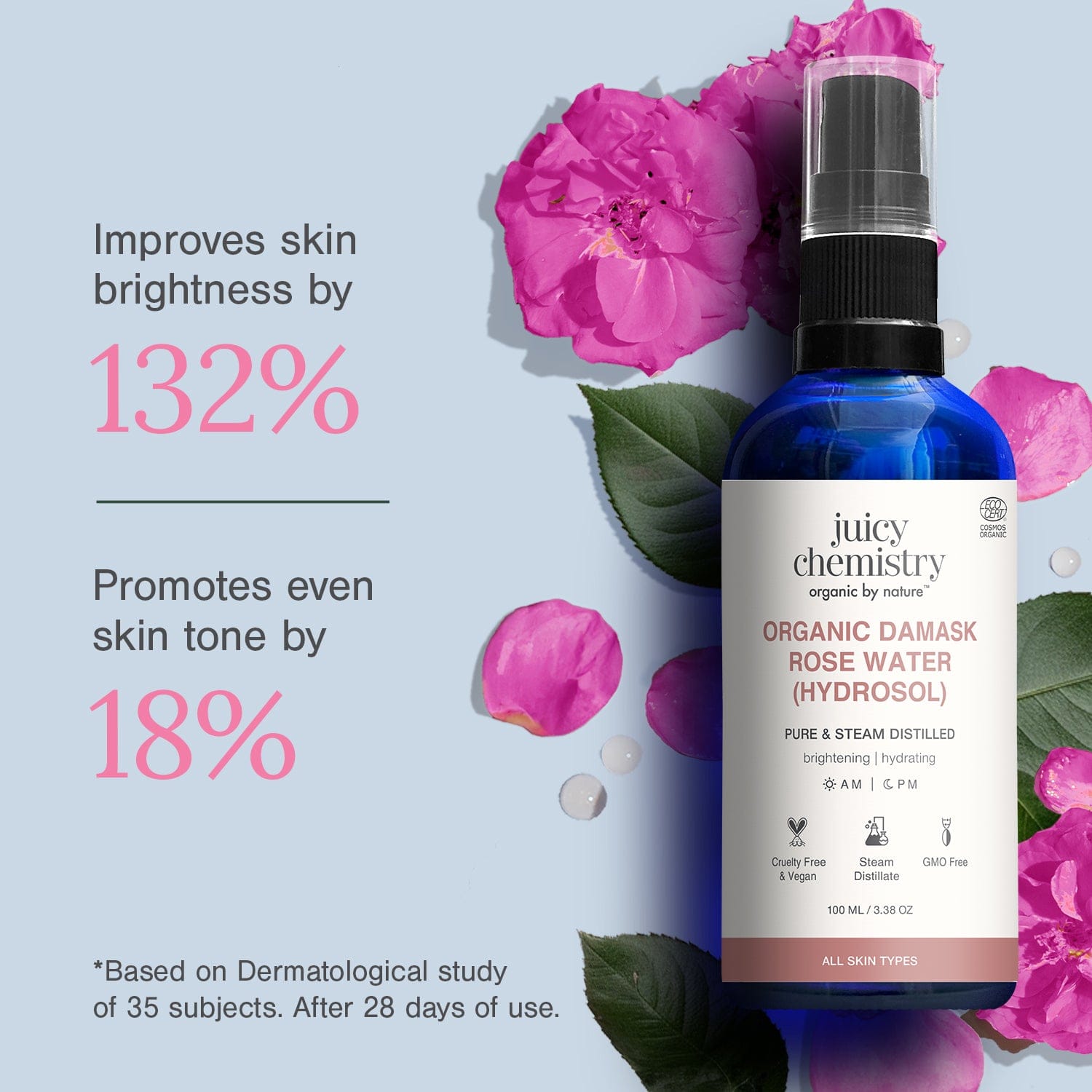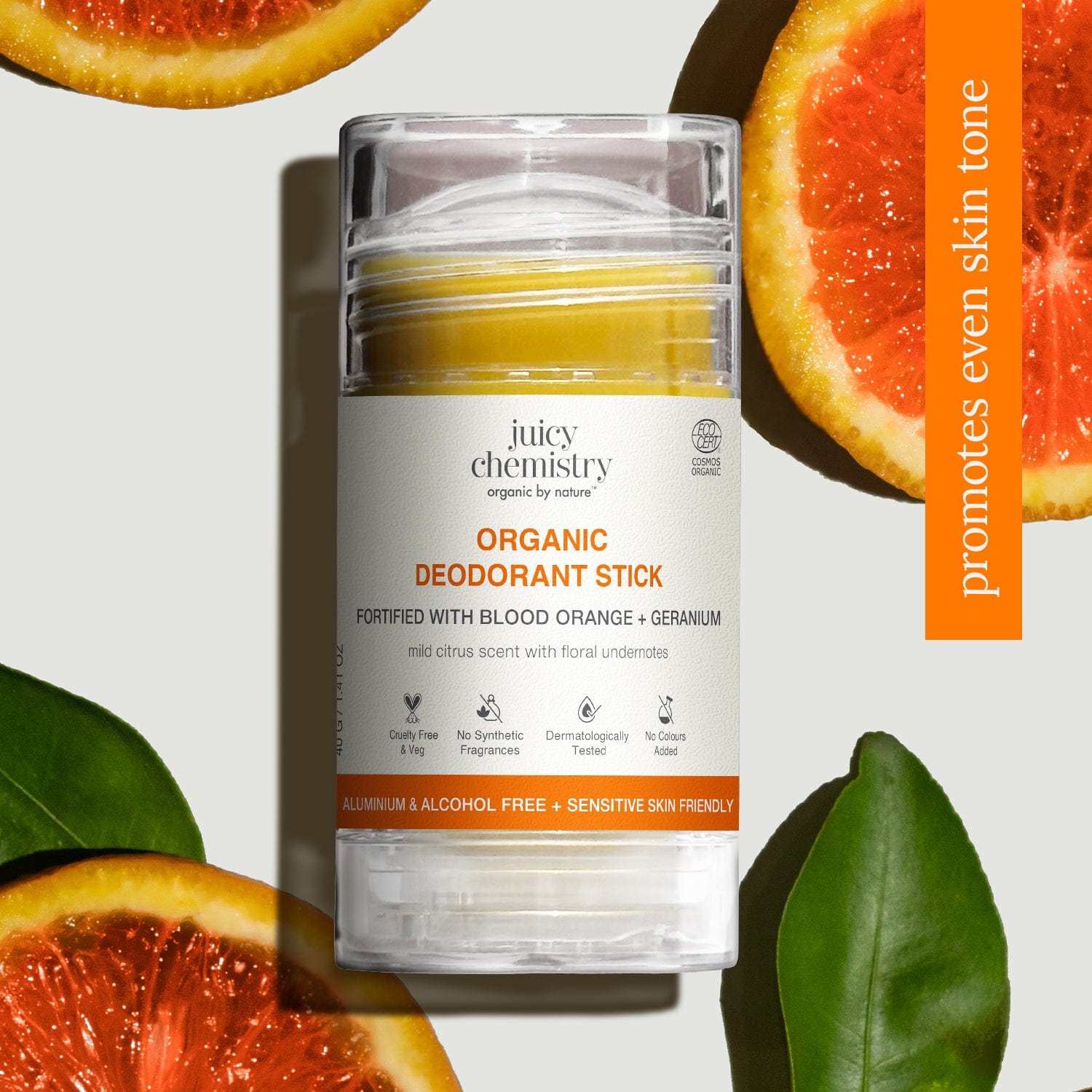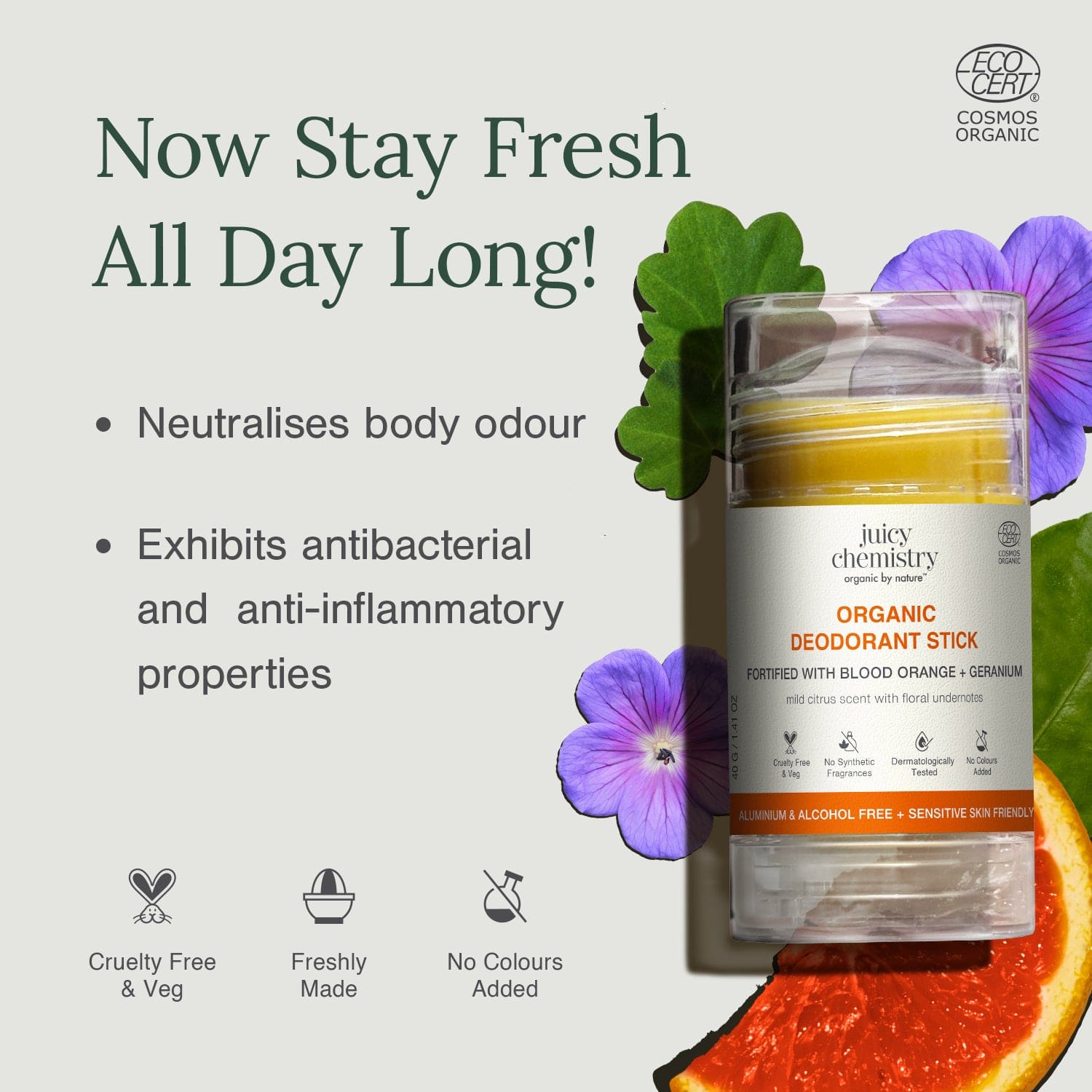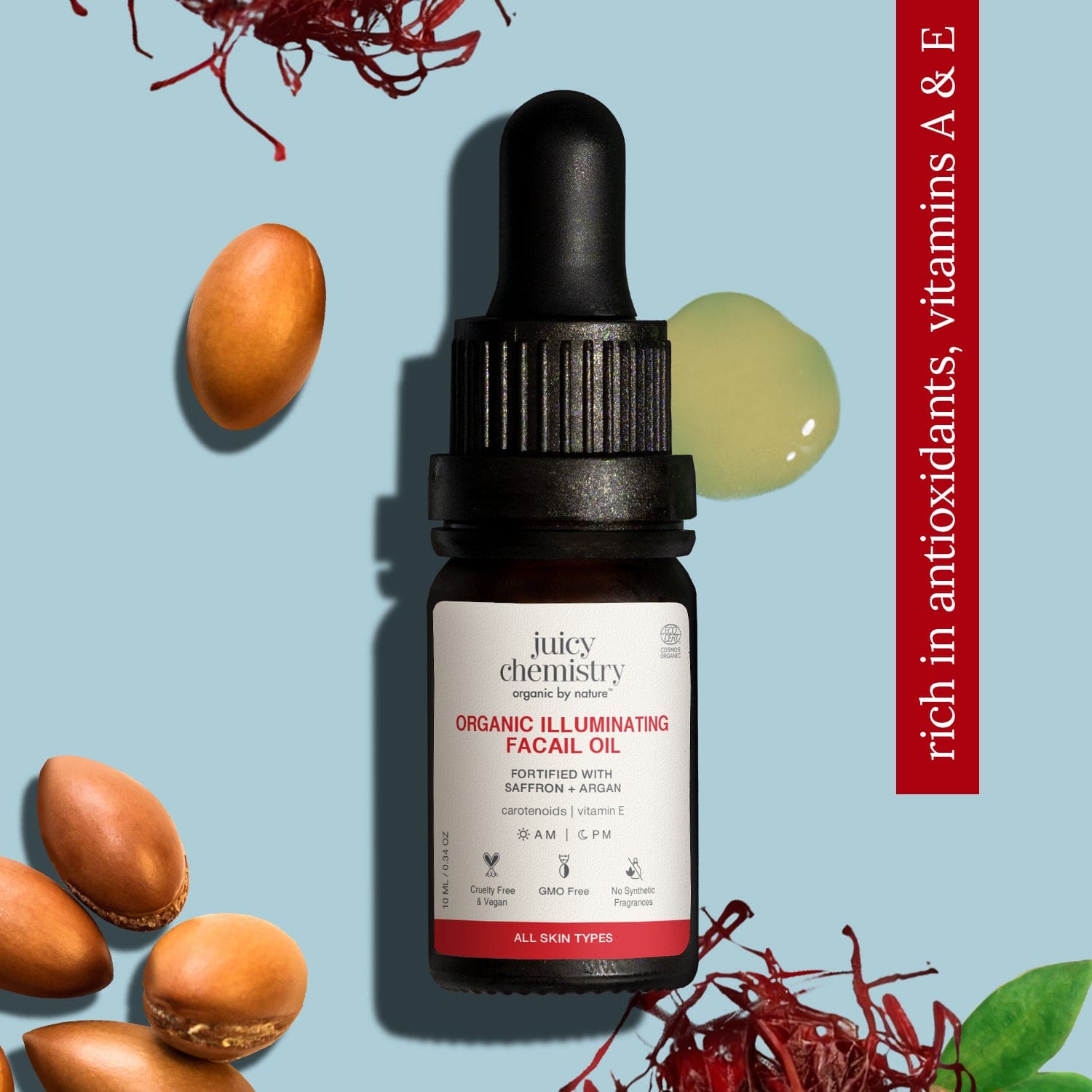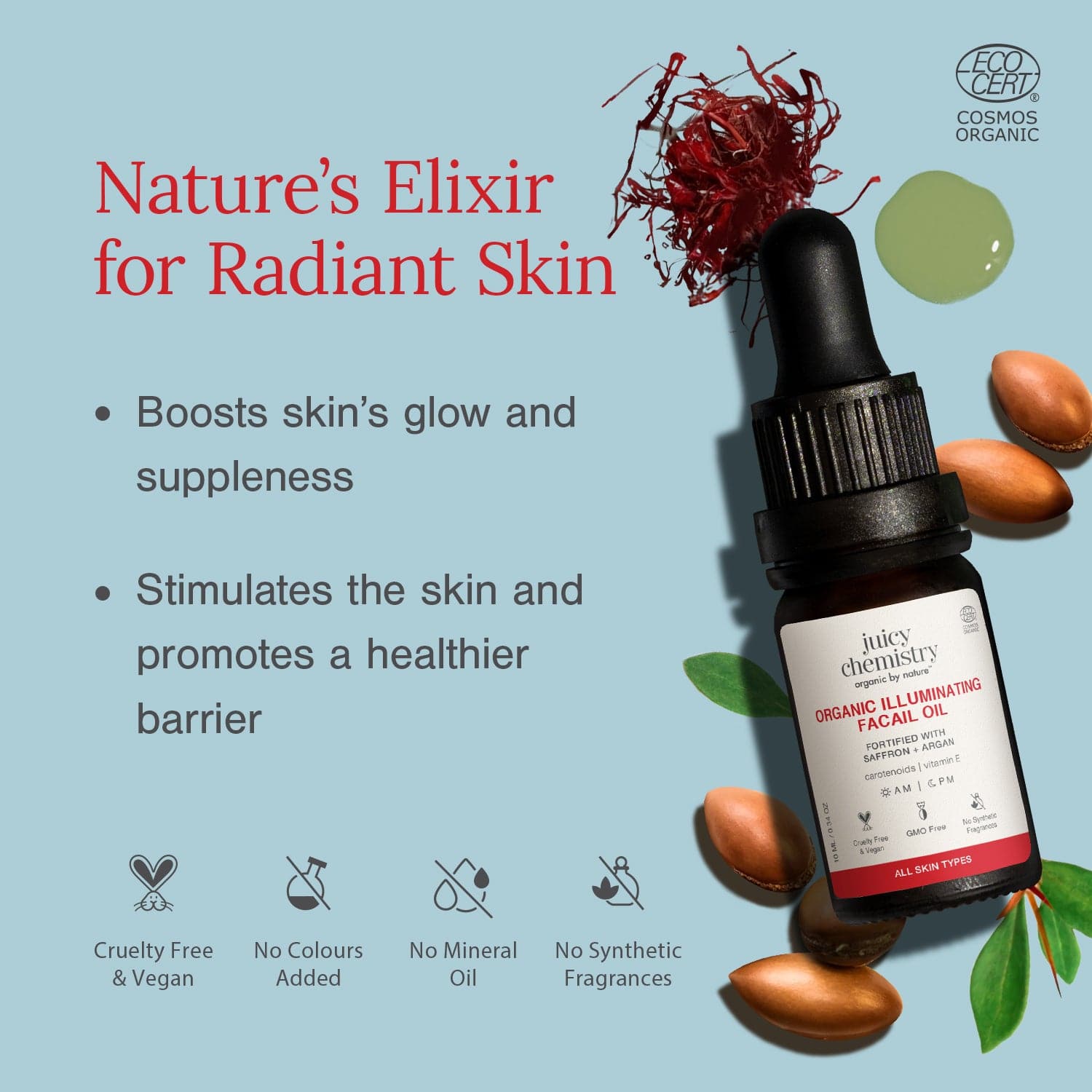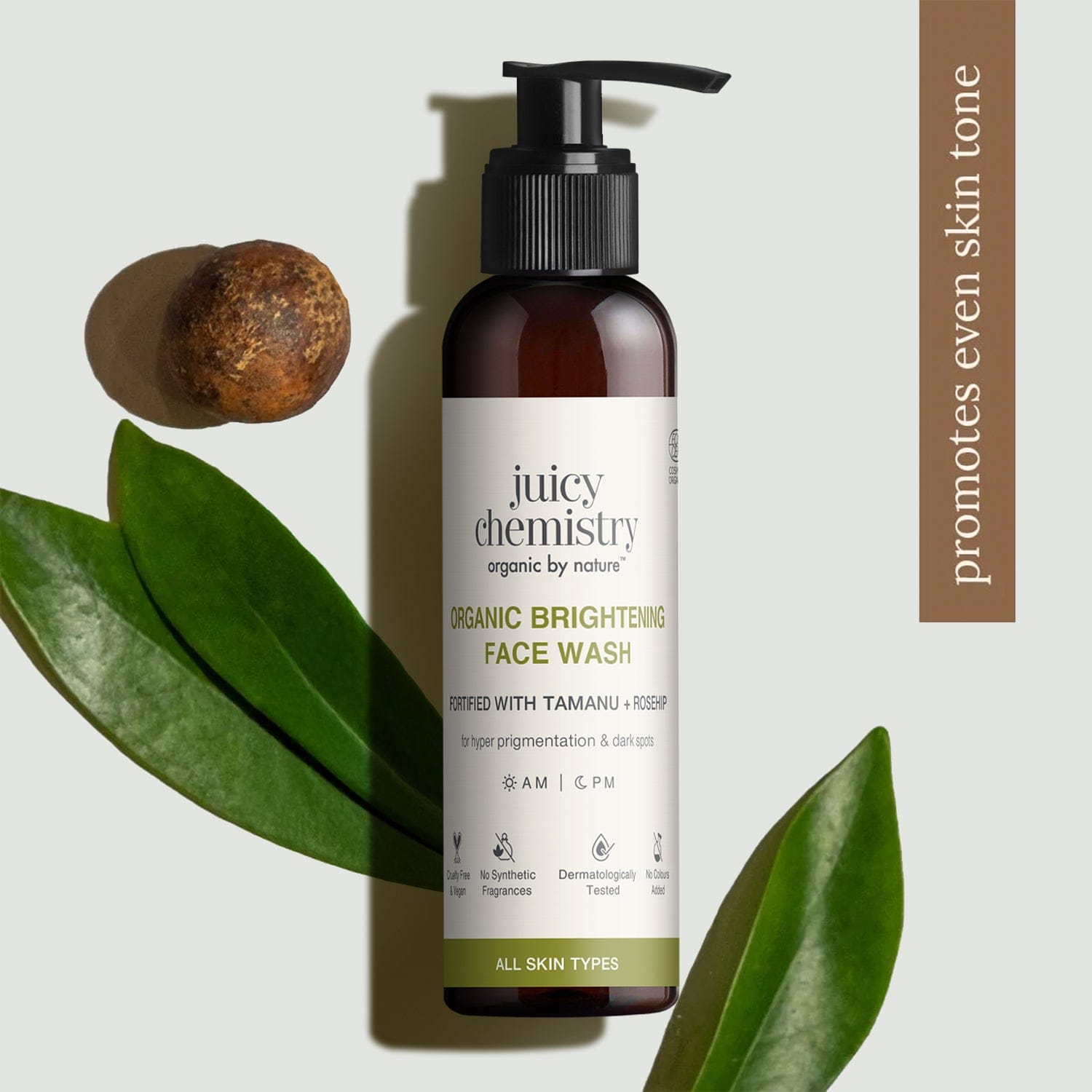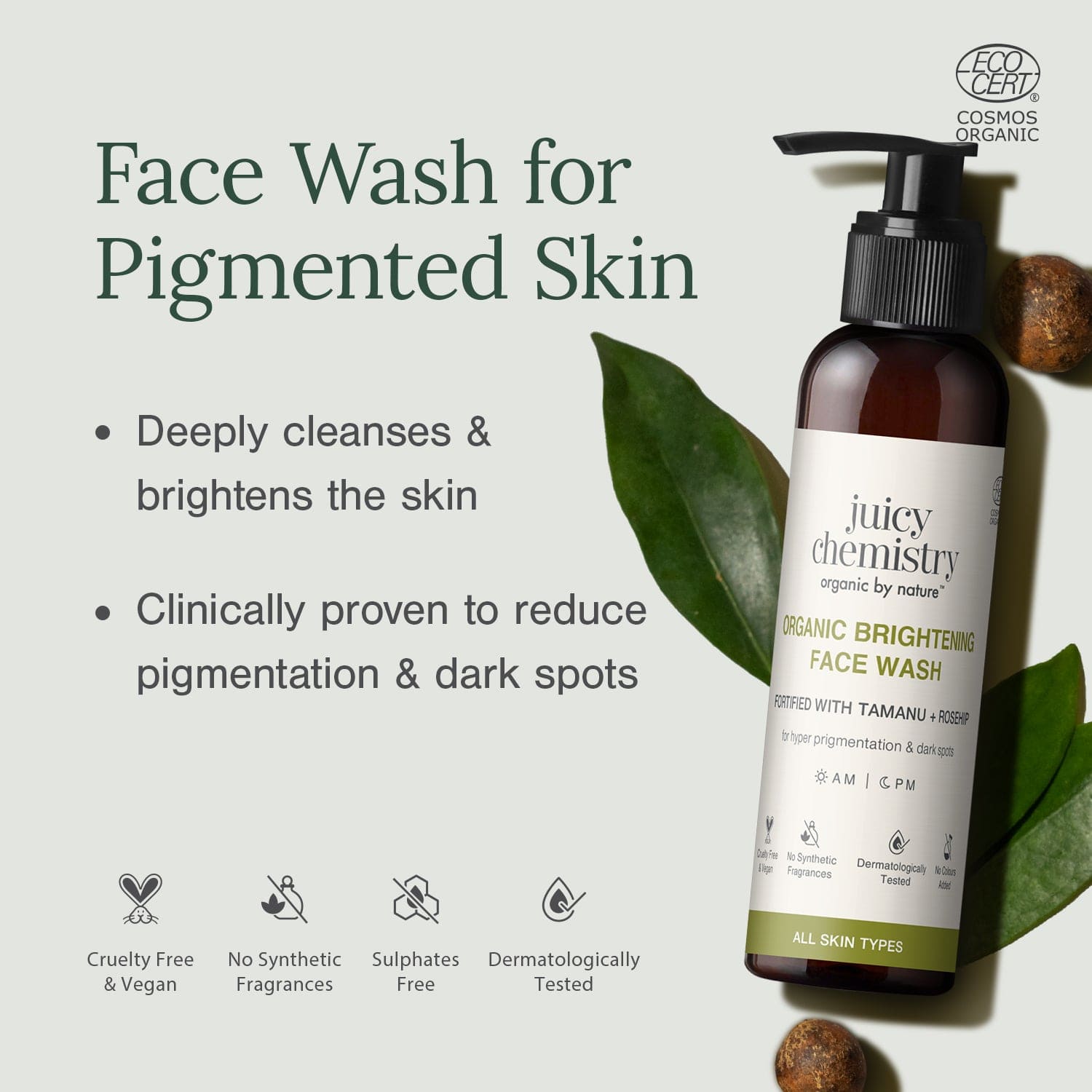Looking to reduce Hyperpigmentation? Let Patience and Precaution prevail!
July 25, 2021Hyperpigmentation refers to an increase in skin pigmentation, often resulting in an uneven distribution of color across the skin. This condition can manifest as dark spots, facial pigmentation, hyperpigmentation on the lips, or discoloration around the mouth, all of which are examples of hyperpigmentation. It is a prevalent issue that many individuals encounter. Hyperpigmentation can affect any area of the body, not just the face. In this article, we will explore the causes of hyperpigmentation and the measures we can take to diminish dark spots or patches once they appear.
To comprehend the causes of hyperpigmentation, it is essential to recognize that pigmentation is linked to an increase in melanin, the natural pigment responsible for coloring our skin, hair, and eyes. The amount of melanin produced by an individual's skin, as well as the distribution of melanocytes, is determined by genetics. When the cells that produce melanin are influenced by various factors, they may generate excess melanin. Numerous elements can disrupt melanin production, triggering hyperpigmentation. Let’s examine these factors one by one.
Factors Contributing to Hyperpigmentation
-
Exposure to Sunlight
Sun exposure is one of the primary and significant contributors to hyperpigmentation. Melanin serves as the skin's main defense mechanism against harmful UV rays. Intense sunlight can stimulate the overproduction of melanin. Continuous and excessive exposure to the sun can disrupt this process, leading to hyperpigmentation. Additionally, sun exposure can worsen pre-existing pigmentation. -
Nutritional Deficiencies
Certain nutritional deficiencies, such as a lack of vitamin B12 and/or iron, can lead to hyperpigmentation. [1] [2] [3] -
Hormonal Changes
Hormones can affect a specific type of hyperpigmentation known as melasma or chloasma. Melasma is characterized by the development of large patches of hyperpigmentation. Certain hormone treatments may also have hyperpigmentation as a side effect. -
Skin Inflammation
Hyperpigmentation that arises from skin inflammation is referred to as post-inflammatory hyperpigmentation. Conditions such as acne, psoriasis, or skin injuries like cuts and burns can lead to darkened and discolored skin once the wound or condition has healed. This type of pigmentation typically fades over time, although it may not completely disappear. -
Aging
Age is another factor that contributes to hyperpigmentation. The number of melanocytes tends to decrease as one ages, and some individuals may notice an increase in dark spots as they grow older. -
Medications
Certain medical conditions can also lead to hyperpigmentation, which may be triggered by specific medications. -
Health Conditions
Skin pigmentation is often linked to insulin resistance. Acanthosis nigricans (AN) is a condition commonly associated with insulin resistance, characterized by dark, velvety hyperpigmentation of the skin. Hyperpigmentation in areas such as the neck or skin folds may indicate insulin resistance. [1]
Now that we have identified the causes of hyperpigmentation, let’s explore how we can reduce or prevent it. As mentioned earlier, factors like hormonal fluctuations or aging are beyond our control. While hyperpigmentation in these cases can be minimized to some extent, it cannot be completely eliminated. However, there are several methods we can adopt to address hyperpigmentation. We will also discuss preventive measures to avoid its occurrence.
It is important to remember that when dealing with hyperpigmentation, patience and caution are crucial. It is widely believed that hyperpigmentation cannot be permanently cured. Nevertheless, utilizing effective skincare products and adhering to sun safety practices can significantly aid in achieving a more even skin tone.
Strategies to Prevent Hyperpigmentation
-
Sun Protection
As previously noted, sun exposure is a major contributor to hyperpigmentation, and it can also darken existing pigmentation. Therefore, sun protection is the most fundamental and effective way to prevent hyperpigmentation from developing in the first place. Sun protection should not be limited to just the summer months; it should be a year-round practice. Always apply a broad-spectrum sunscreen that offers protection against both UVA and UVB rays (with a minimum SPF of 30). Sunscreen plays a vital role in preventing the formation of dark spots. When it comes to sun protection, it is essential to choose a high-quality sunscreen and to reapply it regularly when outdoors. Effective sun protection can help prevent the further darkening of existing hyperpigmentation. -
Balanced Diet
Consuming a well-balanced and nutritious diet can aid in replenishing the body and reducing free radical damage. -
Adhering to a CTM Routine
Consistently following a cleansing, toning, and moisturizing (CTM) routine helps rejuvenate and nourish the skin. This practice hydrates the skin while enhancing its barrier function. -
Avoid Picking at Acne
If you have acne-prone skin or frequently experience breakouts, it is crucial to avoid picking at your acne. Picking can increase the likelihood of post-inflammatory pigmentation. Allow the acne to heal naturally or use anti-acne products as part of your skincare regimen. These products can help reduce inflammation and, in turn, lower the risk of post-inflammatory pigmentation. -
Exfoliation
Regular exfoliation helps reveal fresh, new skin cells while removing dead skin cells. Utilizing organic scrubs for exfoliation not only aids in this process but also provides nourishing ingredients that keep the skin soft and supple. -
Incorporating Skincare Products for Hyperpigmentation
Include skincare products specifically formulated to target hyperpigmentation and that have been dermatologically tested. Ingredients rich in antioxidants can help diminish pigmentation. Products containing Vitamin C are particularly effective in combating free radicals while improving skin texture. Incorporating skincare items with antioxidant-rich components and Vitamin C can significantly aid in reducing pigmentation.
Some individuals may choose to seek professional assistance to diminish or reduce the visibility of hyperpigmentation. We will not delve into the specifics of such treatments, as they are personalized and require consultation with a dermatologist or esthetician.
Let us check Juicy Chemistry's range of products that help with hyperpigmentation
-
Juicy Chemistry Camellia & Red Raspberry Certified Natural Sunscreen
Certified organic water-resistant sunscreen formulated with non – comedogenic cold pressed organic oils and non – nano zinc oxide. It provides broad-spectrum protection of SPF 30 against UV rays. Rich in essential fatty acids, the cold pressed oils deeply moisturize the skin and fortify the skin barrier. This sunscreen is reef safe and suitable for all skin types. -
Juicy Chemistry Australian Sandalwood & Myrrh Organic Night Cream
This rich and nourishing cream rejuvenates the skin. Pomegranate and Rosehip Seed Oils are rich in antioxidants and help even out the skin tone. The night cream is suitable for dry, mature skin. -
Juicy Chemistry Kakadu Plum & Pomegranate Organic Facial Oil
This lightweight oil is nourishing and rich in vital nutrients and antioxidants. It helps improve the skin tone and texture while protecting the skin from free radicals. This face oil is suitable for all skin types however a patch test is recommended for acne prone skin. -
Juicy Chemistry Helichrysum & Rosehip Organic Facial Oil for Pigmentation & Scars
This fast-absorbing oil is nourishing and helps improve skin health and skin tone. It is rich in antioxidants due to plant oils such as Rosehip and Carrot Seed Oils. The face oil is suitable for all skin types except acne-prone skin. - Juicy Chemistry Kakadu Plum, Matcha & Blood Orange Organic Face Mask This face mask is rich in vital vitamins and antioxidants. Kakadu Plum is one of the richest sources of vitamin C. Matcha and Hibiscus extracts are rich in antioxidants. Essential oils of Blood Orange and Grapefruit helps reduce the impact of the sun and free radical damage.
-
Juicy Chemistry Cold Pressed Rosehip Seed Organic Carrier Oil
Rosehip oil is rich in Vitamin C and an effective antioxidant. It helps to reduce the appearance of scarring, hyper-pigmentation, and skin damage. Rosehip oil is suitable for all skin types including sensitive & acne prone skin types. -
Juicy Chemistry Bulgarian Rose Water Organic Toning Mist
A hydrating, nourishing and brightening toner for the skin. Damask Rose distillate also helps balance the skin and restore pH. The toner is suitable for all skin types.
Frequently Asked Questions on Hyperpigmentation
-
How long does it take for hyperpigmentation to fade?
The appearance of hyperpigmentation can be reduced, but usually can't fade away completely. With or without professional help, some hyperpigmentation can be permanent. It might take 6 to 24 months to see visible changes in hyperpigmentation. -
Does vitamin C help with hyperpigmentation?
Yes, vitamin C has exfoliating properties and it helps in removing dead skin cells. Vitamin C is also antioxidant-rich and helps to reduce free radical damage. Make sure to consistently use products that are dermatologically tested and formulated with vitamin C. -
Can Lemon remove dark spots?
We do not recommend trying lemon on your face. It can irritate and disrupt the pH of the skin. -
What is the main reason for pigmentation?
The main reason for pigmentation can be a combination of one or more triggers such as hormones, age, skin inflammation, sun exposure.
Please remember not to try any DIYs or professional tools at home. Let patience prevail in case of hyperpigmentation.
References
https://www.aad.org/public/everyday-care/skin-care-secrets/routine/fade-dark-spots
https://www.aad.org/public/diseases/a-z/melasma-treatment
https://www.ncbi.nlm.nih.gov/pmc/articles/PMC3834696/
https://www.aad.org/public/everyday-care/skin-care-secrets/routine/fade-dark-spots
https://www.aad.org/public/diseases/acne/diy/treat-early

